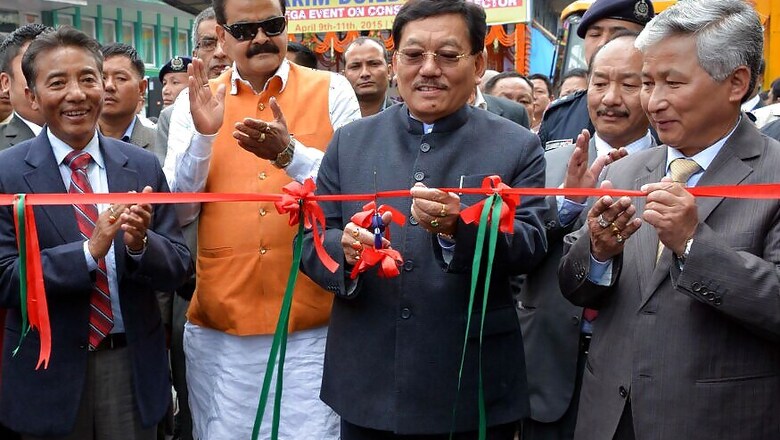
views
When Sikkim’s Pawan Chamling set a new record by becoming India’s longest serving Chief Minister of a state, overtaking former West Bengal CM Jyoti Basu, he attributed the feat to the love of his people and his deep sense of commitment to serve.
Twenty four years is quite the milestone for a politician of a regional party.
Back in 1993, Pawan Chamling formed the Sikkim Democratic Front (SDF), which has been ruling the north-eastern Himalayan state for nearly two-and-a-half decades, and he remains the party’s unanimously elected president till date.
Chamling was sworn in as the Chief Minister for the first time on December 12, 1994. The 68-year-old leader has won five consecutive legislative Assembly elections, equalling Basu’s achievement and is looking to complete his fifth term which Basu couldn’t on account of failing health and passed on the mantle to Buddhadeb Bhattacharjee.
Sikkim is scheduled to hold its state polls in 2019 with opposition parties, including the newest entrant – Bhaichung Bhutia’s Hamro Sikkim, accusing the state government of promoting “rampant corruption”.
“I have more to do. I want to use my position to serve the people of Sikkim and fulfil their hopes and aspirations, find roads to development,” said Chamling, while recently addressing the media at his official residence in Gangtok.
Chamling, though, can claim credit for a host of achievements that have cemented his position amid his people – it was under his leadership that Sikkim was declared the Cleanest State in India (2016), the First Fully Organic State (2016), Best State in Transparency and Accountability (under MGNREGA for 2017), Best Tourism Performing State in Northeast since 1998 and a state with the Best Working Conditions for Women (2016) among many other accolades.
The Chief Minister, however, believes that his biggest achievement has been in the maintaining of peace in a bordering and geo-politically sensitive state.
“When the rest of the world is looking for peace, you will find it in my state. And this itself is development,” said Chamling.
Pawan Chamling’s career has had its ups and downs, and in the midst of it all, his popularity kept soaring. Chamling joined politics in 1973 and was elected to the Sikkim Legislative Assembly for the first time in 1985.
On September 9, 1992, Pawan Chamling, then a rebel Sikkim Sangram Parishad MLA, had lit a candle during the zero hour of the Assembly as a mark of protest against an ‘autocratic’ government. He went underground for three months in 1993, but was still carrying out political activities. After a series of major political upheavals in Sikkim, Chamling formed the SDF on March 4, 1993. He has never looked back since the party kept on winning the 2004, 2009 and the 2014 state Assembly polls.
“When I think of how Sikkim looked 40 years ago, and how it looks now since my tenure as Chief Minister for 24 years, I find it soul-satisfying. We are an example for others to follow – there’s no insurgency, no discrimination in my state,” said Chamling.
Chamling recently said that Nepali communities in India have not received "as much respect and dignity" as was extended to other citizens. He now demands the granting of Scheduled Tribe status to 11 Sikkimese-Nepali communities, an issue which has been lying unresolved for over 40 years.
“There have been times when newly inducted Union Ministers in Delhi would ask if I come from Nepal. I would tell them I came along with Gautam Buddha to India. The Nepali community in India is still struggling with identity crisis,” said Chamling.
Pawan Chamling has received more than 60 awards, honours and prizes from national and International agencies and institutions since 1987.
(With inputs from Prakash Adhikary)



















Comments
0 comment